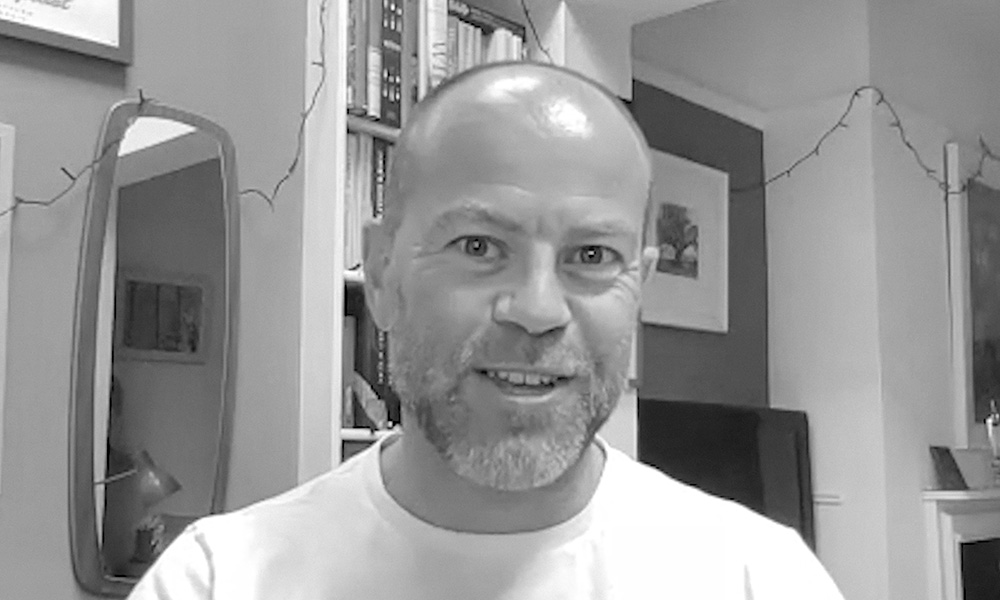Most offsites or team away days aren’t worth the PowerPoint deck they’re written on, so it was with some reluctance that we first accepted an invitation to design a Be More Pirate workshop around innovation. In our experience, the annual promise of change is usually an exercise in platitudes where all and any momentum gained, dies shortly after.
However, after a couple of sessions, we began to think again. Across dozens of workshops with hundreds of participants, we managed to crack a method for mutiny, and once we began giving people permission to tell the truth, we realised how much of the corporate dance is a lie.
So, in early 2019 to verify our observations, we conducted a relatively small but statistically representative workforce survey.
We need to cultivate a willingness to confront silos and cross boundaries to find inspiration in more unexpected places. In the darkness of the unknown, there is treasure.
One of the first questions was this: “Have you ever sat in meetings and agreed to verbally ‘align’ around an idea whilst internally disagreeing completely?” 85% answered that they had done this at least once.
The follow up asked whether “despite agreeing to support the idea, you took absolutely no follow up action, or even silently sabotaged it.” A total of 55% agreed that their ‘alignment’ was verbal only, with 10% admitting to sabotage.
The only possible conclusion we could draw from this brief experiment is that conformity is fatal for business. People are saying yes when they really mean kill-me-now, and in this exists an uncomfortable paradox. In 2020, LinkedIn ranked creativity as the number one most valued soft skill by employers yet when you look closely at day-to-day practices, and as evidenced by our survey, individuals seem to be incentivised to conform.
Agreeing with peers, fitting in and adhering to long-established protocol is what reaps real-time rewards. We want out-of-the-box thinking, but very much in-the-box being. What we get is a dichotomy of dishonesty.
It is the job of a leader to not only create the conditions for resilient and agile tactical operations, but also to align them to the overall strategic goals. Whilst leaders must give their subordinates delegated authority to make decisions and the skills to adapt to changing circumstances they must also ensure that people across the organisation work harmoniously toward clearly stated goals and within the parameters of clearly defined ethical, legal and fiscal boundaries.
Permission to be a non-conformist
When Be More Pirate was published in 2018, it seemed to unlock in readers the spirit of permission to not just think differently, but to behave differently. From startups to Sony, NHS nurses to Nike, we received hundreds of messages describing how the avatar of “pirate” offered renewed courage and a route out of conformity that felt convincing and purposeful.
Being more pirate is about adventure and exploration. For that reason, we avoid using the word innovation wherever possible because people tend to have a preconceived notion of what “innovative” looks like in business. The word itself should always connotate discovery.
Instead, we refer to the edges of the map; the unchartered waters that lay outside of what is familiar. What is not being talked about? Which spaces are off-limits? What practices are taboo? We need to cultivate a willingness to confront silos and cross boundaries to find inspiration in more unexpected places. In the darkness of the unknown, there is treasure.
One of the first teams to seize pirates as a proxy for permission to venture into new territory came from Daimler’s Mercedes-Benz vans division. Not a likely place for piracy, yet the automotive industry’s inevitable disruption meant that uncertainty was coming regardless.
For decades, Daimler built its marketing and sales strategy around conventional broadcast methods such as television advertising, which reinforced the image of a distant, luxury brand. The head of marketing, Nicola Burnside, had a hunch this wouldn’t work in the long-term. So rather than try and outpace their competitors on media spend, her team decided to try a networking approach instead, with a sharp focus on small businesses.
In an unusual move, they hit the road and went out to meet entrepreneurs and small business owners across the UK to see how the vans could better serve their needs. Instead of using agency data, they built up relationships and used these insights to allocate spend, knowing full well that the ROI would likely be slower and that this would be viewed as a risk.
However, the switch from a competitive to a collaborative approach paid off sooner than expected when the March lockdown landed. Overnight, small businesses had to close their doors and could only continue to trade if made mobile. The relationships held by the Mercedes Benz team meant they could quickly pivot and offer a vans loan scheme to support any SME who could continue trading if they could pivot to a delivery model. Thousands of vehicles were made available overnight in a frictionless loan scheme that would have once seemed impossible.
Creating genuinely new and unfamiliar ways of working together is usually deeply uncomfortable. It is the uncomfortable feelings that arise when direct questions are raised about identity, power, money and ethics, that stop us in our tracks.
Organised rebels
The inspiration for this strategy was derived from parts of Be More Pirate, which explain how 17th century pirate ships operated as autonomous but highly networked crews. Scale was achieved without growth for maximum protection. In shorthand, they had each other’s backs.
Pirates could not rely on having new or sophisticated weapons at their disposal; their success was down to innovation around human behaviour. They created dynamic, transparent, democratic ways of working together that enabled quick decision making and less infighting.
Dr Tammy Watchworn, an expert facilitator for virtual reality workspace QUBE, is another professional who’s taken serious note of the pirates’ approach. She has used QUBE extensively across the UK National Health Service to break down system silos and solve complex medical problems, and achieved outstanding results.
The key to success is not the space itself but how it’s governed. Rather than simply handing over the technology to teams, there are clear behavioural rules. For example, everyone who joins a meeting may be instructed to write before they speak, resulting in a more reflective, considered conversation. “It worked in part because people were realising that innovation isn’t about shiny gadgets but about people and how we work and behave.”
If this is true, why aren’t more businesses following suit? Why are we still so reliant on multi-layered command-and-control structures to get things done, and why do we have such strong deference to data when it comes to decision making?
Our observation has been that human interventions often seem too small or unsophisticated to be prioritised, or there is a cavalier attitude that the human element of work will iron itself out naturally. But above and beyond this, creating genuinely new and unfamiliar ways of working together is usually deeply uncomfortable. It is the uncomfortable feelings that arise when direct questions are raised about identity, power, money and ethics, that stop us in our tracks.
Over time we become accustomed to different levels of transparency which gradually shifts culture so that eventually change isn’t just a PowerPoint promise, but an opportunity for real transformation.
Getting comfortable with being uncomfortable
The answer? Practice. Piracy is a practice. The first time you go off the edge of the map, it’s intimidating, but you know to expect the uncomfortable scenarios the second and third time.
The need for practice is why we have embedded “asking the difficult question” as a workshop activity. In the beginning, few people will be truly honest. Still, over time we become accustomed to different levels of transparency which gradually shifts culture so that eventually change isn’t just a PowerPoint promise, but an opportunity for real transformation.
Piracy is about not accepting the empty end goal of traditional consultancy or outsourcing our imagination. It is a call to arms, a fight for honesty and human-centred decision making that doesn’t allow for one-size-fits-all or quick fixes. The hardest part of doing this work is not backtracking when things become awkward (and they will) but knowing that the treasure you seek, always belongs to the brave.
…
This has been adapted from How to: Be More Pirate.



















































